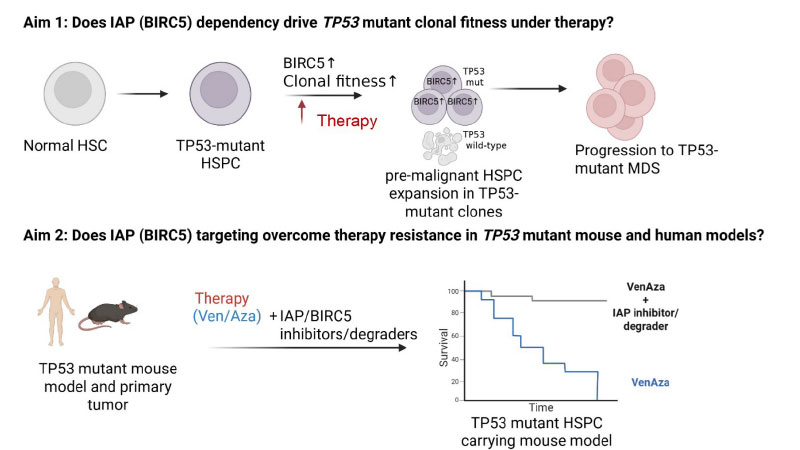
Researcher Profiles

Shruti Bhatt, Ph.D.
2025 Funding Recipient
Targeting strategies for high-risk myelodysplastic syndromes with TP53 mutations
Discovery Research Grant 2025
PROJECT SUMMARY
Myelodysplastic syndromes (MDS) are blood cancers where bone marrow cells become abnormal, causing anemia, infections, and bleeding. High-risk MDS can progress to acute myeloid leukemia (AML), a more aggressive cancer. Patients with mutations in the TP53 gene have particularly poor outcomes—only 20% survive beyond one year compared to 60-70% without this mutation. Current treatments combine hypomethylating agents with venetoclax, a drug that activates cell death pathways. While effective for many, patients with TP53 mutations respond poorly. This highlights a huge unmet need to identify effective therapy for these highly resistant TP53 mutant subgroup of MDS patients.
Our research discovered that cancer cells with TP53 mutations have high levels of Survivin, a protein that blocks cell death. When venetoclax successfully initiates the death process, Survivin prevents it from completing in these TP53 mutated cells. Based on these existing findings, in this project, we will study (1) how Survivin and other targets from this pathway affect blood stem cells with TP53 mutations and help them resist treatment, and (2) test whether drugs that block Survivin can overcome treatment resistance to current standard of care therapy in TP53-mutated MDS.
In summary our research would lead to new treatments to improve survival outcomes of high-risk MDS patients carrying TP53 mutations that currently die in less than one year by nominating novel therapeutic agents.

